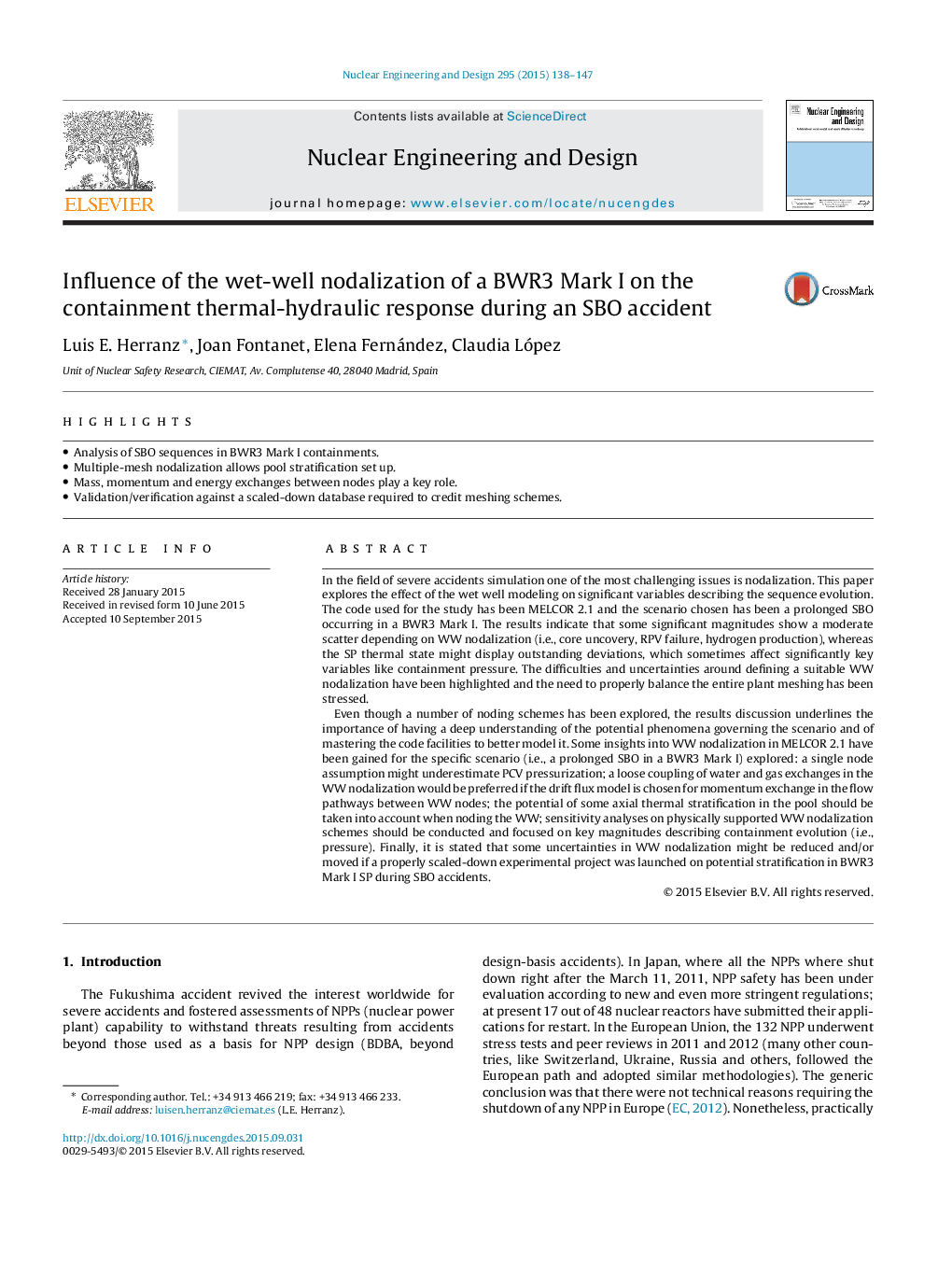| Article ID | Journal | Published Year | Pages | File Type |
|---|---|---|---|---|
| 6760803 | Nuclear Engineering and Design | 2015 | 10 Pages |
Abstract
Even though a number of noding schemes has been explored, the results discussion underlines the importance of having a deep understanding of the potential phenomena governing the scenario and of mastering the code facilities to better model it. Some insights into WW nodalization in MELCOR 2.1 have been gained for the specific scenario (i.e., a prolonged SBO in a BWR3 Mark I) explored: a single node assumption might underestimate PCV pressurization; a loose coupling of water and gas exchanges in the WW nodalization would be preferred if the drift flux model is chosen for momentum exchange in the flow pathways between WW nodes; the potential of some axial thermal stratification in the pool should be taken into account when noding the WW; sensitivity analyses on physically supported WW nodalization schemes should be conducted and focused on key magnitudes describing containment evolution (i.e., pressure). Finally, it is stated that some uncertainties in WW nodalization might be reduced and/or moved if a properly scaled-down experimental project was launched on potential stratification in BWR3 Mark I SP during SBO accidents.
Related Topics
Physical Sciences and Engineering
Energy
Energy Engineering and Power Technology
Authors
Luis E. Herranz, Joan Fontanet, Elena Fernández, Claudia López,
